Filter by
SubjectRequired
LanguageRequired
The language used throughout the course, in both instruction and assessments.
Learning ProductRequired
LevelRequired
DurationRequired
SkillsRequired
SubtitlesRequired
EducatorRequired
Find the Best Python Course for Your Goals

 Status: Free Trial
Status: Free Trial
Google
Skills you'll gain: Programming Principles, Python Programming, Computer Programming, Computational Thinking, Algorithms, Problem Management, Data Structures, Integrated Development Environments, Debugging, Development Environment
 Status: Free Trial
Status: Free TrialSkills you'll gain: Jupyter, Python Programming, Data Structures, Web Scraping, Data Manipulation, Programming Principles, Pandas (Python Package), Computer Programming, Scripting, Object Oriented Programming (OOP), Restful API, NumPy, Application Programming Interface (API), Data Literacy, Data Analysis, Data Import/Export, File Management
 Status: Free Trial
Status: Free Trial
University of Michigan
Skills you'll gain: Web Scraping, Data Processing, Relational Databases, JSON, Database Design, SQL, Network Protocols, Web Services, Restful API, Data Modeling, Programming Principles, Application Programming Interface (API), Data Structures, Data Collection, Data Visualization Software, Data Manipulation, Computer Programming, Python Programming, Scripting Languages, Data Import/Export
 Status: New
Status: New
Universidad Nacional de Colombia
Skills you'll gain: Programming Principles, Debugging, Computational Thinking, Computer Programming, Algorithms, Program Development, Computational Logic, Python Programming, Integrated Development Environments, Development Environment, Software Testing
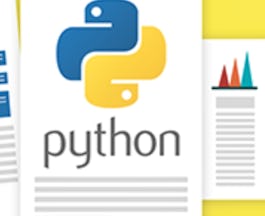 Status: Free Trial
Status: Free TrialSkills you'll gain: Predictive Modeling, Exploratory Data Analysis, Data Wrangling, Data Analysis, Data Import/Export, Pandas (Python Package), Statistical Modeling, Data-Driven Decision-Making, Data Manipulation, Scikit Learn (Machine Learning Library), Regression Analysis, Feature Engineering, Matplotlib, Data Cleansing, NumPy, Descriptive Statistics, Supervised Learning, Data Pipelines
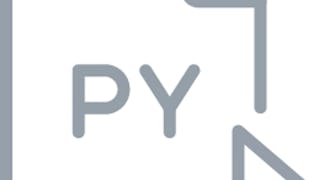 Status: Free Trial
Status: Free Trial
Google
Skills you'll gain: Object Oriented Programming (OOP), Data Analysis, Data Structures, Jupyter, Python Programming, NumPy, Pandas (Python Package), Programming Principles, Scripting, Data Manipulation, Algorithms
 Status: Free Trial
Status: Free TrialSkills you'll gain: Object Oriented Programming (OOP), Unit Testing, Test Driven Development (TDD), Programming Principles, Software Testing, Data Structures, Python Programming, Computer Programming, Development Environment, Integrated Development Environments, Debugging
 Status: NewStatus: Free Trial
Status: NewStatus: Free Trial
Microsoft
Skills you'll gain: Web Scraping, Data Structures, Git (Version Control System), Generative AI, Version Control, Matplotlib, Plotly, DevOps, Agile Methodology, Web Development, Data Ethics, Flask (Web Framework), Scripting, GitHub, Debugging, Data Cleansing, Data Manipulation, Restful API, Docker (Software), Test Driven Development (TDD)
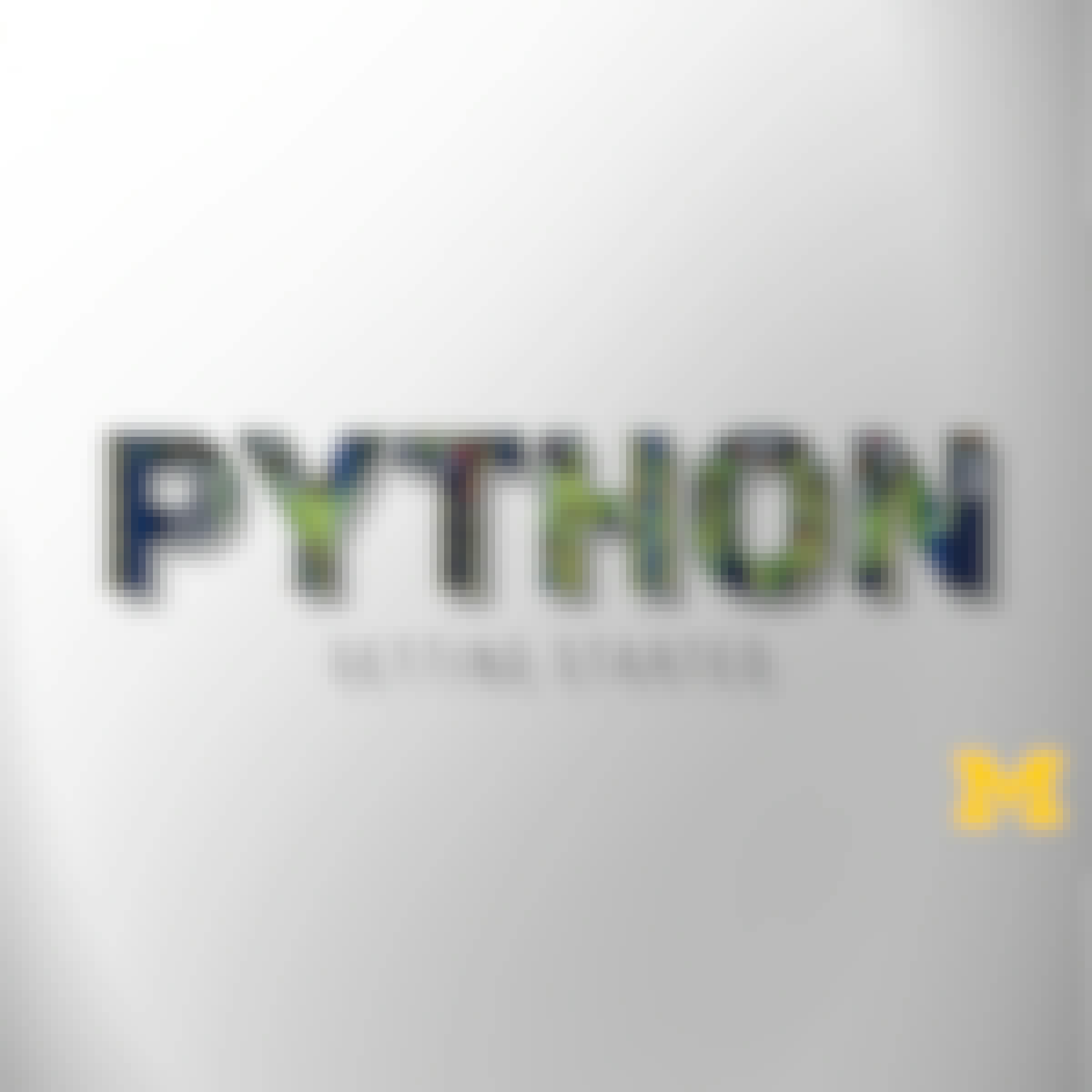 Status: Free Trial
Status: Free Trial
University of Michigan
Skills you'll gain: Programming Principles, Computer Programming, Python Programming, Scripting Languages, Scripting, Computational Thinking, Development Environment
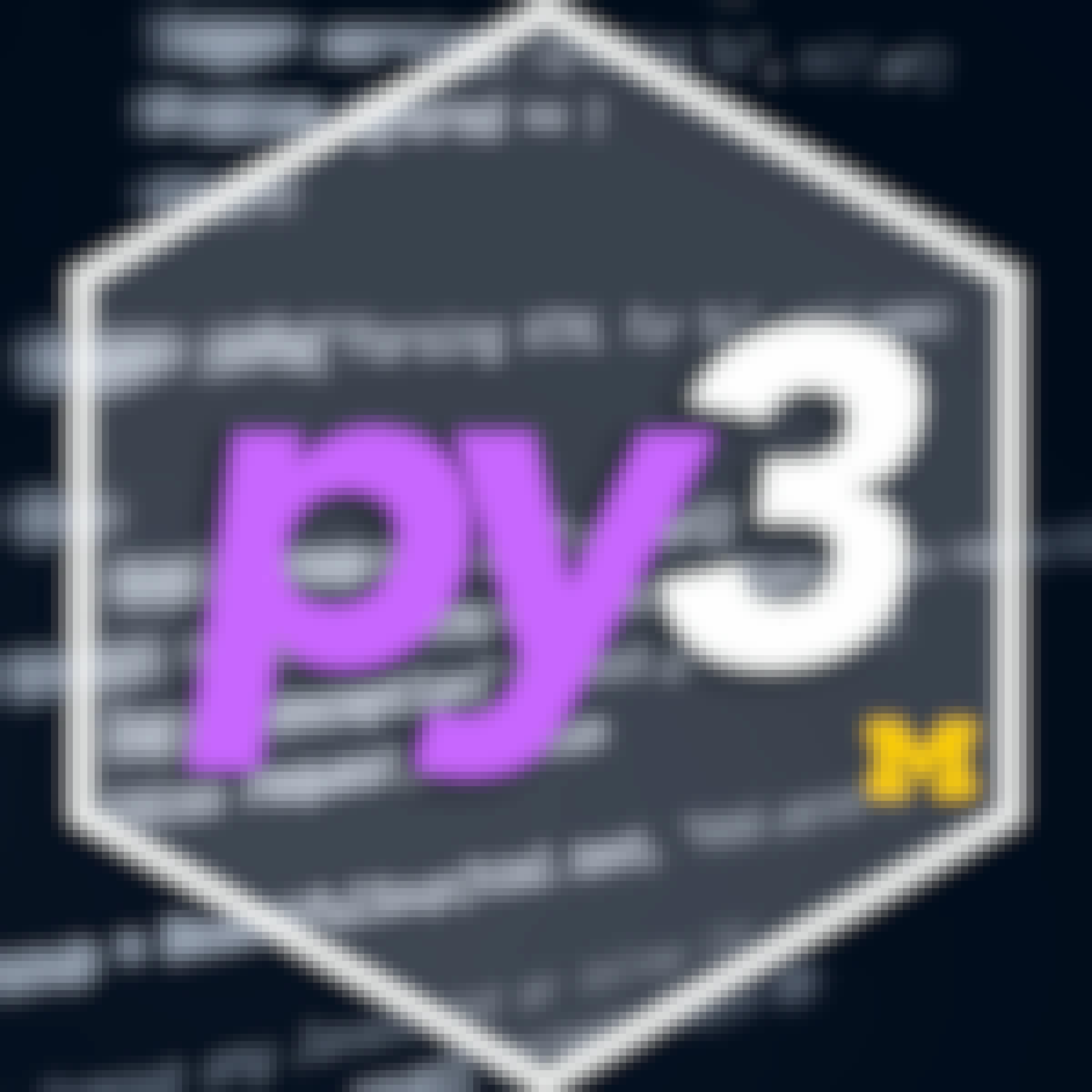 Status: Free Trial
Status: Free Trial
University of Michigan
Skills you'll gain: Debugging, Programming Principles, Python Programming, Data Structures, Scripting Languages, Computer Programming, Pseudocode, Computer Graphics
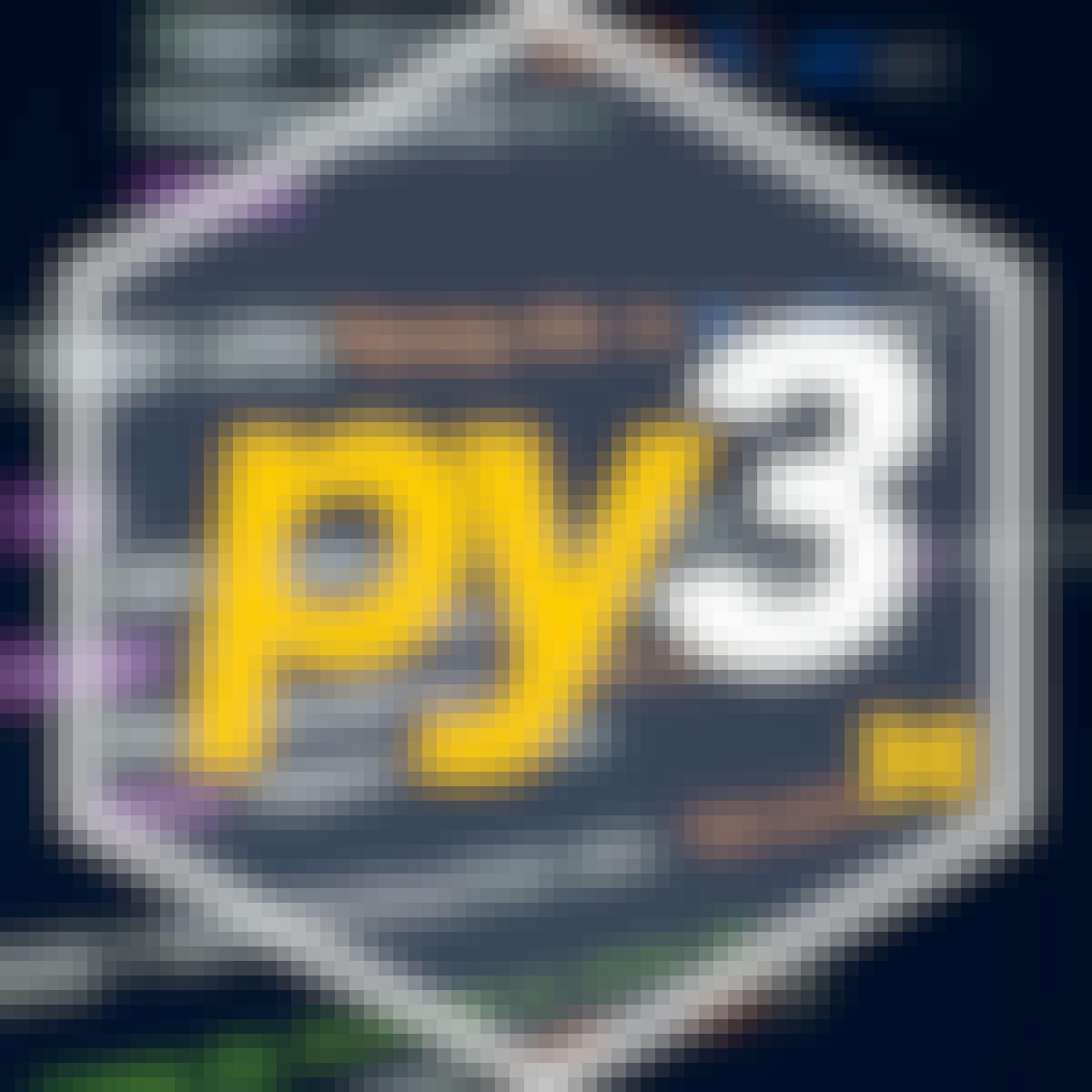 Status: Free Trial
Status: Free Trial
University of Michigan
Skills you'll gain: Unified Modeling Language, JSON, Object Oriented Programming (OOP), Software Design, Debugging, Object Oriented Design, Data Processing, Web Scraping, Unit Testing, Programming Principles, Data Import/Export, Restful API, Python Programming, Image Analysis, Data Manipulation, Jupyter, Maintainability, Data Structures, Software Engineering, File Management
 Status: Free
Status: Free
Coursera Project Network
Skills you'll gain: Python Programming, Command-Line Interface, Programming Principles, Computer Programming, Scripting, Scripting Languages, Development Environment
In summary, here are 10 of our most popular python courses
- Crash Course on Python: Google
- Python for Data Science, AI & Development: IBM
- Python for Everybody: University of Michigan
- Programación con Python, nivel básico: Universidad Nacional de Colombia
- Data Analysis with Python: IBM
- Get Started with Python: Google
- Programming in Python: Meta
- Microsoft Python Development: Microsoft
- Programming for Everybody (Getting Started with Python): University of Michigan
- Python Basics: University of Michigan












